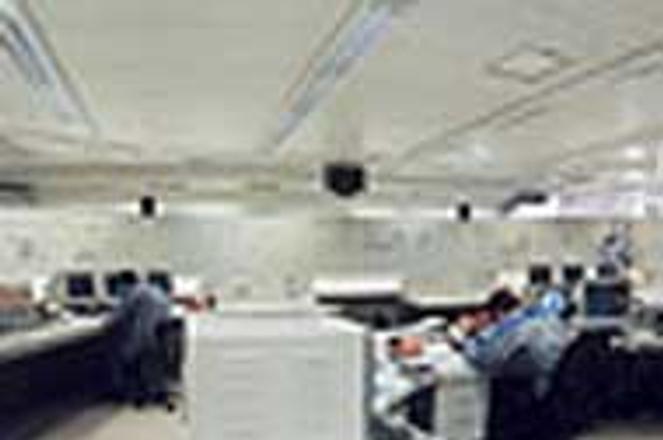The control center for Mochovce nuclear power plant is being prepared to make the transition to the year 2000.photo: Courtesy of Mochovce
Millennium bug fever has struck Slovakia, but computer analysts are not sure that the country is sufficiently prepared to survive the disease.
On March 25, Bank Austria Creditanstalt will hold a seminar on Slovakia's preparation for the millennium bug, also known as Y2K. The seminar will close a week in which the millennium bug was pushed to the forefront of the nation's business agenda.
On March 18, The American Chamber of Commerce in Slovakia held a millenium bug business breakfast featuring invited speakers from Oracle, Compaq and Arthur Andersen. The British Embassy, in coordination with the Slovak Statistical Office, was to follow Am Cham's panel with a millennium bug seminar on March 23.
The recent rash of Y2K discussions has been caused by concerns that Slovakia is not taking preparations for the Y2K phenomenon seriously enough.
Computer experts the world around expect that as the date changes to January 1, 2000, millions of computer chip-controlled electronic systems will fail due to a flaw in the embedded time pieces they contain.
David Lyscom, Britain's Ambassador to Slovakia who will chair the embassy's March 23 seminar, said that Slovakia may experience many Y2K-related problems due to a lack of awareness.
"My feeling is that Slovakia is nowhere near as far down the road as [Britain] is [in preparing for the millennium bug]," Lyscom said. "I attended meetings last February and March [1998] which were meant to summarise actions that had already taken place. Well, here we are already a year later with less than ten months to go and my impression is that these sorts of activities have not yet taken place."
Other analysts agree that Slovakia is dramatically behind western countries, as well as its own neighbours, in terms of Y2K preparedness. One Bratislava analyst, speaking on condition of anonymity, reported that research conducted by the Gartner Group showed that 66% of Slovak companies have not addressed the Y2K issue, compared to 50% in the Czech Republic and 30% in Hungary. He explained that these results put Slovakia in the same category of preparedness as Costa Rica, Cambodia and Albania.
Martin Smekal, a consultant for Arthur Andersen in the Czech Republic, agreed that Slovakia was definitely behind its western counterparts, but said that he didn't believe the country was behind the Czechs.
"I would say that the level of preparedness in Slovakia is on the same level as the Czech Republic," Smekal said. "In relation to western countries, I would put both the Czech Republic and Slovakia a year behind in terms of starting points. Of course, that does not mean that we will not finish on time - we just started later."
But other analysts said that while Slovakia may have started later than western countries, it will not be affected to the same extent by Y2K because the country's relative lack of integrated, high-tech systems will result in fewer Y2K-related problems.
Vladimír Luknár, a Y2K specialist for computer firm Compaq, argued that "in Slovakia, we haven't seen such widespread growth of advanced technology. Here, we only need to have transportation, eat and get paid. I mean, we don't fly to work."
But analysts like Luknár are in the minority. Lyscom, for his part, said that the country still has many problems to address and that his embassy's seminar would be the last chance to achieve any level of preparedness.
"I'm not convinced that many companies realise the full extent of the problem," Lyscom said. "This is really their last chance to get anything moving."


